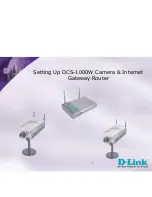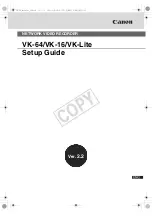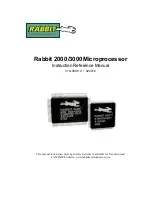
DT Etherlink IV
User Manual
- 10 -
3
TECHNICAL DESCRIPTION
3.1 General Information about S-Access Etherlink_IV
The S-Access
Etherlink_IV SHDSL.bis Extended
product family offers a broad range of products,
which are based on the latest SHDSL.bis standards (ITU-T G.991.2 & ETS TS 101 524), while also
being fully interoperable with all our existing SHDSL equipment (Etherlink1 & Etherlink_II). The S-
Access Etherlink_IV supports TC-PAM16/32 and the new TC-PAM4/8/64/128 line coding. The
support of these line codes ensures compatibility with existing SHDSL equipment that is already
installed, in order to protect customer investments, while at the same time providing an upgrade
path to the newest DSL technologies.
SHDSL.bis Extended allows symmetrical data and voice transmission at speeds up to 15.2Mbps
over a single pair of copper. In addition, the S-Access Etherlink_IV modem range also supports DSL
channel bonding for up to 4 copper pairs in order to achieve speeds to 60.8Mbps! S-Access
Etherlink_IV SHDSL.bis Extended modems can provide up to 4 complete E1 interfaces, which
support framed and unframed services (G.703/G.704). An integrated 2 or 4 port Ethernet layer 2
managed switch with VLAN support (10/100BaseT) ensures connectivity to IP services. Beside of
E1 and Ethernet we have additional interfaces like Nx64 that can be configured to be a V.35, V.36,
X.21 or V.28 interface (cable selected). Also RS-232 and RS-485 (asynchrounous) are available.
This makes S-Access Etherlink_IV SHDSL.bis Extended modems a perfect solution for a wide range
of applications in which TDM and IP services need to be transmitted over copper wires.
Like all S-Access Etherlink products, the Etherlink_IV SHDSL.bis Extended modems family is based
on industrial components and is manufactured according to highest quality standards providing
additional value due to the extended temperature range and higher reliability.
The S-Access
Etherlink_IV SHDSL.bis Extended
product family consists of
LTU devices (Line Termination Units)
Usually Central Office Equipment.
LTU’s can be powered from local DC power supply. (36-72VDC)
LTU’s has the possibility to have an on board remote power (120/200VDC).
NTU devices (Network Termination Units)
Usually Customer Premise Equipment.
NTU’s can be powered from local DC power supply.
NTU’s can be powered remotely from LTU’s.
RR devices (Repeater, Regenerator)
Increase (double) the distance.
RR’s can be powered:
locally with DC voltage.
remotely from LTU’s.
Supported management features:











































